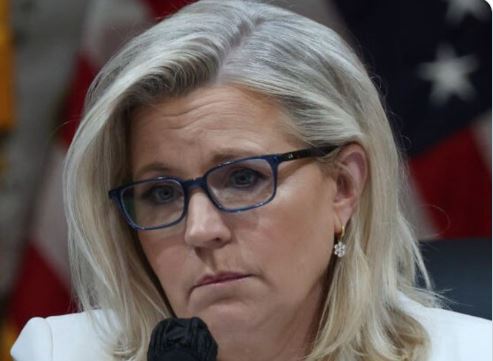In a dramatic turn of events, former Congresswoman Liz Cheney finds herself facing the fallout from her relentless campaign against Donald Trump, which has ultimately cost her political career. Following the recent election that resulted in the announcement of a new President-elect, Cheney took to the social media platform X to express her resignation to the electoral outcome. In her post, she emphasized the importance of accepting election results and urged Americans to uphold the Constitution and support democratic institutions. Cheney’s message aimed to resonate with the idea of unity and responsibility, particularly as the nation embarks on another four years of governance under new leadership. She called on citizens, as well as various branches of government, to act as the “guardrails of democracy,” indicating that active participation in upholding democratic values is essential during challenging times.
Despite her calls for unity and respect for the electoral process, the response from the public was overwhelmingly negative, reflecting the resentments many hold against her for her previous actions. Cheney’s outspoken opposition to Trump and his supporters has led to deep-seated animosity among her former allies and constituents. Critics expressed their disapproval through vitriolic replies on social media, underscoring her perceived betrayal of the Republican Party and its base. Remarks included harsh insults as well as pointed queries about her political future, highlighting a harsh reality for Cheney: the anger directed at her is powerful and pervasive. This sentiment showcases a significant disconnect between her and the segment of the Republican electorate that remains staunchly loyal to Trump.
Cheney’s ambitions for political rehabilitation seem to have crumbled, especially after speculation that her loyalty to Democratic figures like Kamala Harris might lead to a high-profile cabinet position. However, with Trump’s continued prominence and recent victory, any dreams of returning to power in a prominent role evaporated almost instantly. This personal and political debacle marks her second major humiliation in a notably short period. In 2022, she faced a staggering loss in her Congressional primary election, losing by more than 40 points to Harriet Hageman, a candidate favored for her alignment with Trump. As the Republican Party shifts increasingly toward Trumpism, Cheney has found herself increasingly isolated and vilified, struggling to maintain her standing within a movement that once defined her political identity.
The layers of her downfall illustrate a broader narrative about loyalty and betrayal within the current political landscape. Cheney’s actions during and after the January 6th Capitol riot, where she served as a prominent critic of Trump’s rhetoric and actions, have branded her as a target of animosity among those who once might have supported her. This has placed Cheney in the uncomfortable position of being viewed as a traitor by the very political faction that nurtured her initial rise. As Trump’s influence persists, her efforts to undermine him have backfired decisively, aligning herself against the tide of a movement that believes in loyalty over policy or personal convictions.
Now, Cheney stands as a symbol of political infamy, with many seeing her as an example of what happens to those who oppose the prevailing winds within their party. The sharp reactions to her recent post reveal a stark reality: her attempts to project a message of democratic integrity are overshadowed by the scars of her perceived betrayal. As the Republican Party continues to evolve, those who challenge Trump or seek to promote alternative philosophies face severe repercussions, thereby constricting the space for dissent within the party. Cheney’s current predicament serves as a cautionary tale, illustrating the high stakes involved in political loyalty and the diminishing room for dissent in the face of powerful party ideologies.
As America looks ahead, Cheney’s experience could serve to recalibrate how political figures engage with their constituents and navigate the tumultuous landscape of contemporary politics. With accountability and civic responsibility now more critical than ever, the role of political leaders in shaping and responding to public sentiment is immeasurably complex. For Cheney, her journey from a Congressional role to political pariah highlights an urgent reality in modern governance: political ambition often comes with risks, and aligning with a shifting coalition can lead to unexpected and severe consequences. In a country torn between divided factions, Cheney’s plight may resonate well beyond her personal narrative, reflecting the broader struggles faced by those steering through a politically charged environment unyielding in its demands for allegiance.

